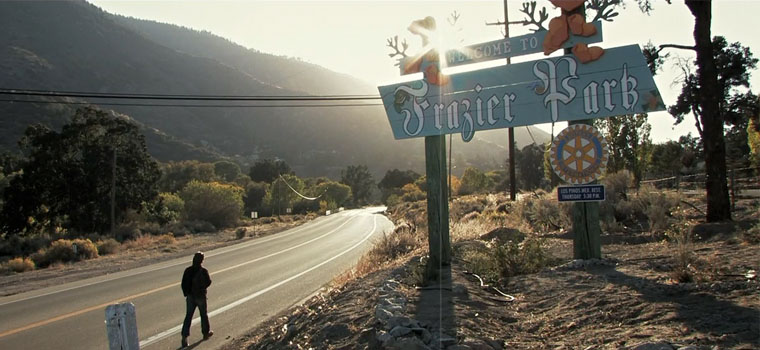 Rosewater
Rosewater
Written and Directed by Jon Stewart
USA, 2014
Jon Stewart’s feature debut, Rosewater, is an uneven affair that excels when it stays focused on the restorative power of humor and hope. Not surprisingly, Stewart struggles with the dramatic elements, but a nuanced performance from Gael García Bernal pulls us through the rough spots. Ultimately, this is a flawed but earnest film that effectively straddles the line between uplifting humanism and preachy polemic.
Born and raised in Tehran, Iran, Maziar Bahari (Bernal) had witnessed firsthand the tragic consequences of living an outspoken life in times of tyranny. His father was imprisoned and tortured by the Shah in the ‘50s, while his sister, Maryam, (Golshifteh Farahani) suffered similar torment at the hands of the Khomeini regime in the ‘80s. And yet, from this death and despair came the promise of renewal. Bahari fled to Canada, where he studied journalism and became a respected member of the profession. His wife (Claire Foy) was pregnant with their first child, and back home, Iran was embarking upon free elections between the incumbent, President Mahmoud Ahmadinejad, and several opposition candidates. As the primary Iranian correspondent for Newsweek, Bahari would have a front row seat to his homeland’s rebirth.
Sadly, the rebirth never materialized, and Bahari, suddenly thrust into a swirling post-election storm, was visited by the same fate that befell his father and sister. Taken into custody as a suspected Zionist spy for the West, Bahari is interrogated by the man he calls Rosewater (Kim Bodnia); a “specialist” more interested in crushing Bahari’s spirit than his body. These early scenes between Bahari and Rosewater simmer with tension and uneasiness. It’s a battle of wills that Bahari is doomed to lose unless he can find a new spring of hope to sustain him.
As a director, Stewart succeeds because he understands that his material requires a simplified approach. He keeps the first third of Rosewater fluid, even making Bahari’s self-appointed guide, Davood (Dimitri Leonidas), a motorcycle courier instead of a cabbie. While it limits Stewart’s visual choices, it gives the story an added sense of movement. It also bolsters the underlying thematic thrust, which suggests that dictators will have a much harder time hiding in the shadows in this information-rich digital age. Vehicles seem so analog in a world populated by jostling protestors and uncaring motorists.
Once the story shifts indoors, with Bahari and Rosewater jostling for control, Stewart bolts things down. His sparse camera treats the action like a stage play. It becomes a story told in close-up, as we retreat into Bahari’s deteriorating mind. Long monologues are interspersed with fiery confrontations, first with Rosewater and then with the memory of his deceased father, who comes to counsel Bahari in his darkest hours. Some may knock Stewart for his lack of visual flare, but his modest approach enhances the verisimilitude this story needs to be effective.
It’s ironic that Stewart, a longtime satirical stalwart on television’s most brilliantly written show, struggles more with his screenplay (adapted from Maziar Bahari’s memoir) than his direction. His dialogue, in particular, labors under the ideological fervor you might expect from a political sparkplug. Part history lesson, part diatribe, Stewart’s words may resonate with the wonky choir, but they will likely leave general audiences lukewarm. The cynicism makes for a harsh juxtaposition with the humorous material, as well. When Stewart sticks to what he does best—the satire and the humor—he delivers some truly inspired moments. After Bahari realizes, for instance, that Rosewater is pre-occupied with sex, he cleverly manipulates his captor with fanciful stories about massage parlors and lecherous mistresses. This type of carefully measured dryness makes the shrill ranting feel even more self-indulgent.
Rosewater is an assured debut from a passionate filmmaker with good instincts. It never lends much to our understanding of Bahari’s cartoonish foes, but it illustrates the power of the human spirit. In trying to create a crowd-pleasing political drama, Jon Stewart underscores the importance of humor as a truly powerful weapon. Rosewater might not transcend the political drama, but it certainly adds a welcome touch of humanity.







